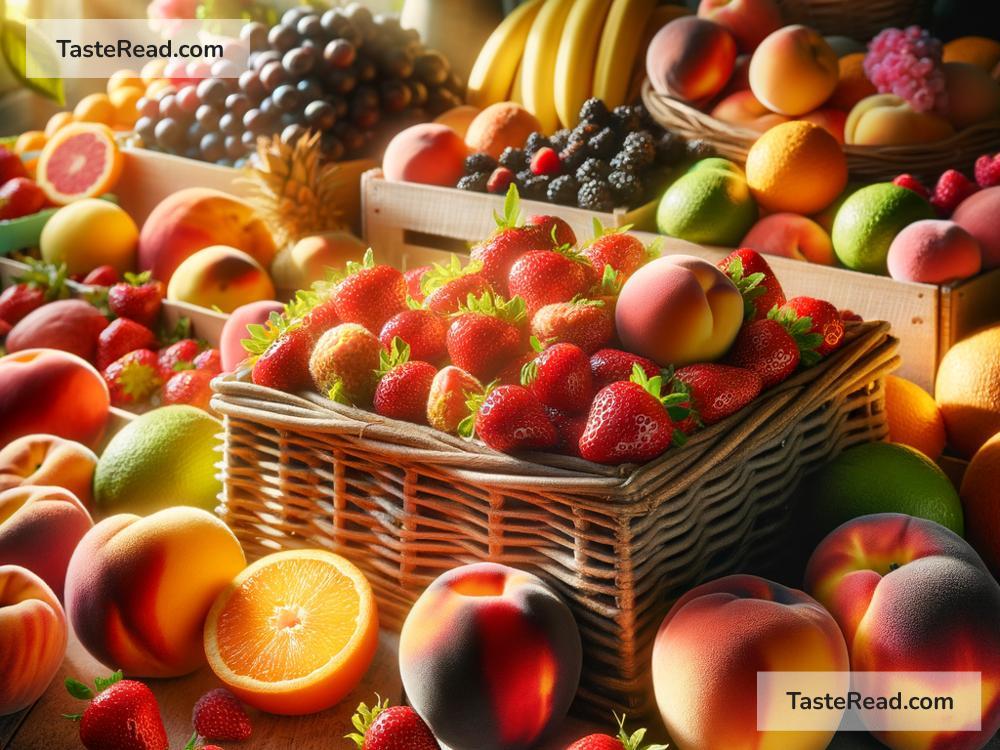Why Fruits Taste Better in Certain Seasons
Have you ever taken a bite of a juicy strawberry in the summer and thought, “Wow, this tastes amazing”? Then tried the same strawberry in winter and felt disappointed? You’re not alone! Many people notice that fruits taste much better during certain times of the year, and there’s a simple reason for it. In this blog, we’ll explore why fruits are tastier in their proper seasons and why eating seasonally could be a great choice for you.
The Role of Nature in Fruit Flavor
Fruits are nature’s sweet treats, but their flavor depends on how they are grown. Most fruits grow best during specific times of the year, depending on their environment and climate. For example:
- Apples and pears thrive in cooler autumn temperatures.
- Strawberries and peaches love the heat of summertime.
- Citrus fruits, like oranges and lemons, grow best during the winter.
When fruits grow during their proper season, they have ideal conditions to develop fully. This means they get enough sunlight, water, and nutrients from the soil. As they mature under natural circumstances, their flavors become richer, sweeter, and more satisfying. On the other hand, if fruit is grown out of season or forced to ripen artificially, it often loses its natural sweetness and can taste bland.
How Modern Farming Changes the Game
In our modern world, we can find almost any fruit at the grocery store year-round. Even strawberries—and they’re not a winter fruit! How is this possible? Large-scale farming companies often use technology, chemicals, and controlled environments to grow fruits and keep them available even when it’s not their natural season.
For example, fruits can be grown indoors in greenhouses or shipped from warmer countries to meet winter demand in colder places. While this is convenient, it doesn’t mean the fruit will taste as good. Why? Because out-of-season fruits don’t get the kind of sunshine, soil nutrition, or weather conditions that make them develop their best flavor. Instead, they’re grown quickly to meet demand, sacrificing taste for availability.
The Connection Between Freshness and Flavor
Another reason fruits taste better in their proper season is freshness. Seasonal fruits are often harvested closer to where you live and reach your table more quickly after being picked. This freshness makes a huge difference.
Fruits that are shipped long distances—especially out-of-season fruits—often have to be picked before they fully ripen. That’s because ripe fruits don’t last long during transport and could spoil before reaching stores. Picking fruits early keeps them intact for travel but prevents them from developing their peak flavor. Even if they’re sprayed with chemicals to “ripen” later, they may taste different from a fruit that ripened naturally on the tree or bush.
Why Eating Seasonally Matters
Not only do seasonal fruits taste better, but they may also be better for your health, your wallet, and even the environment. Let’s look at some of the benefits of eating fruits in season:
1. Better Nutrition
Seasonal fruits are often more nutritious than out-of-season ones. That’s because they’re grown in their natural conditions, where they can soak up the nutrients they need. A summer strawberry grown outdoors will often have more vitamins and antioxidants than a greenhouse strawberry grown in winter.
2. More Affordable
Fruits that are in season are usually less expensive. This is because farmers don’t have to use extra technology or transportation to grow and deliver them. For example, buying oranges in winter (when they’re in season) is often cheaper than buying them during summer.
3. Environmentally-Friendly
Eating seasonal fruits helps reduce the need for transportation and artificial farming techniques. This cuts down on pollution and reduces harm to the environment. When you buy a locally grown apple in the fall, you’re supporting sustainable farming practices and lowering your carbon footprint.
4. Support for Local Farmers
Seasonal fruits are often grown by local farmers. Buying fruits in season from farmers’ markets or local grocery stores helps support your community and keeps farming traditions alive.
Simple Tips for Eating Seasonally
Want to enjoy fruits at their tastiest? Here are a few simple tips to help you eat seasonally and experience the magic:
- Check seasonal produce charts: Find out which fruits are in season by looking up charts for your region. These can help you plan meals around the right produce for the time of year.
- Visit farmers’ markets: Local farmers’ markets tend to offer fresh, seasonal fruits. These fruits are usually grown nearby and are picked at their peak for flavor.
- Try frozen fruits: If you crave out-of-season fruits, frozen options are a great alternative. Frozen fruits are often picked and packaged at peak ripeness, capturing their best flavor.
Conclusion
Fruits taste better in certain seasons because nature knows best. When fruits grow during their natural time, they soak up the right amounts of sunshine, nutrients, and rain to create the perfect blend of flavor. Eating seasonally means enjoying fresher, tastier fruits that are better for your health, your budget, and the planet.
Next time you bite into a grape or nibble on a piece of peach, take a moment to think about its season. Choosing fruits at the right time can turn a snack into something truly special! So, savor the seasons and enjoy nature’s delicious rhythm.


